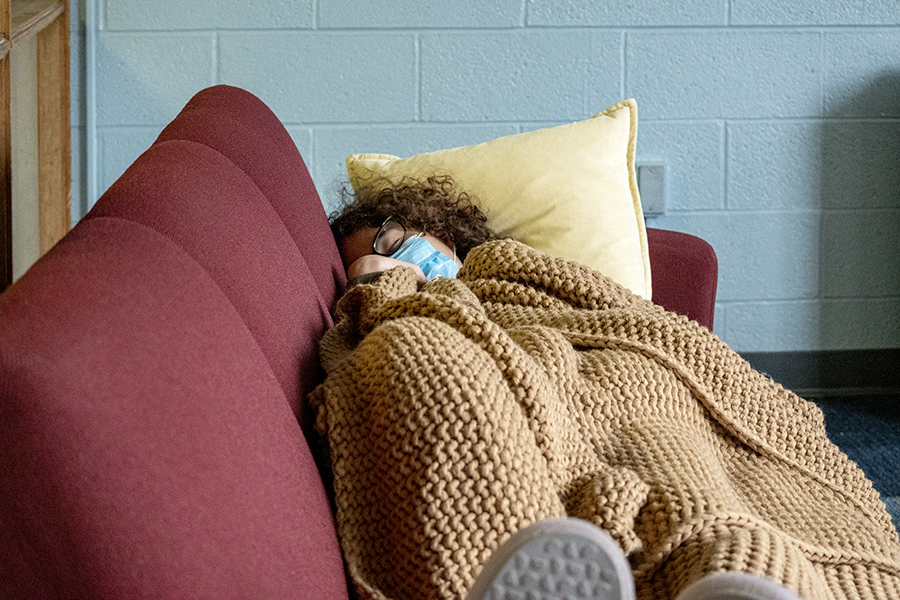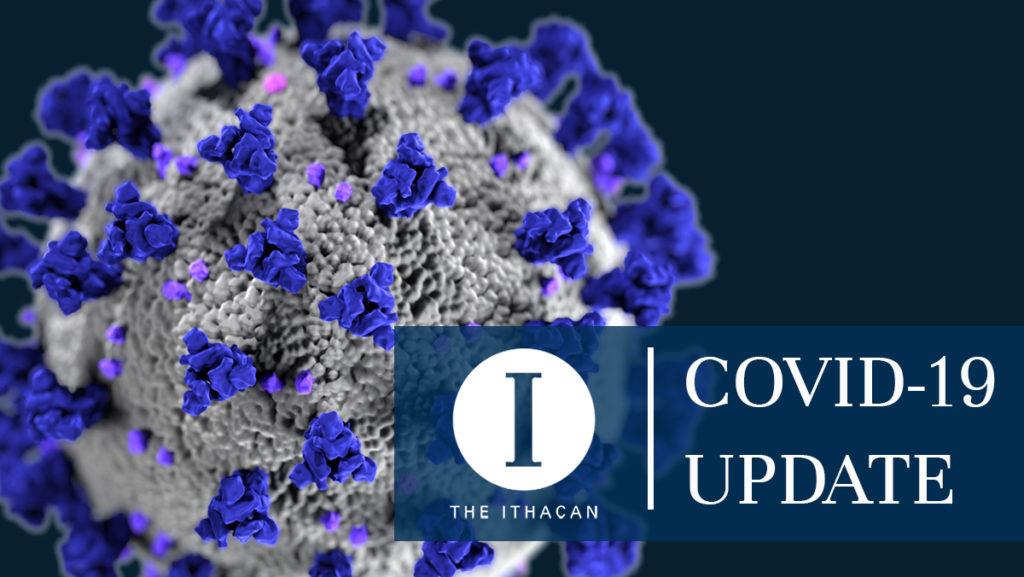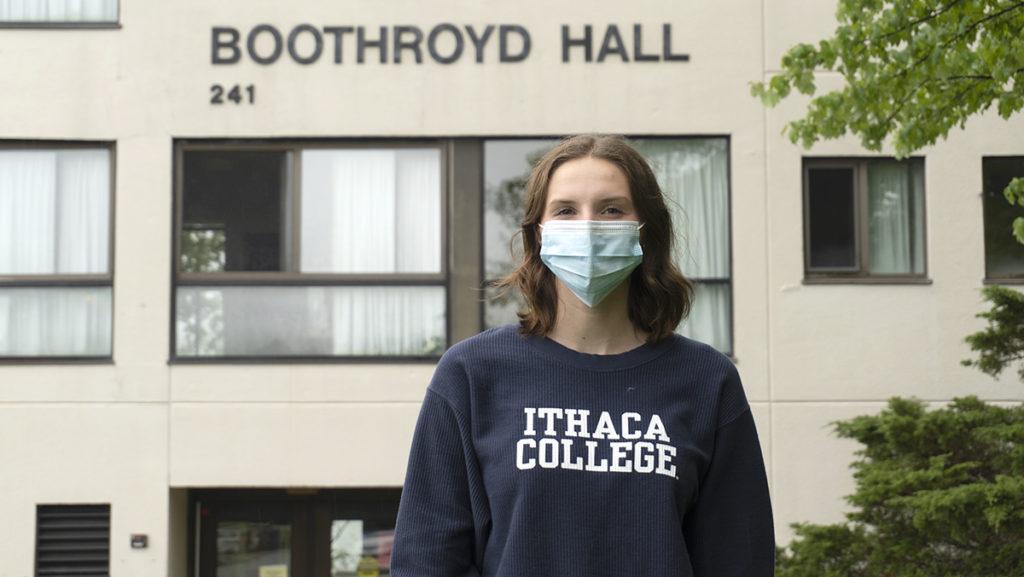Ithaca College has released its return to campus plan, which covers the repopulation of the campus, monitoring the campus community’s health, containment of the coronavirus and the shutdown of the campus if necessary.
President Shirley M. Collado shared the plan Aug. 11 via email to the campus community. The plan includes previously released information about move-in but also includes information about social distancing, personal protective equipment (PPE), testing, residential life, academic operations and the cleaning and disinfection of campus areas. It also includes guidelines about isolation and quarantine and the protocol for if the college needs to shut down. The college may need to amend the plan because of changing guidelines and the unpredictability of the virus, the email stated. The email also included the new Community Agreement, which details new rules and behavior that must be followed.
All faculty, staff and students must sign the Community Agreement. It includes sections about compliance with local, state and federal laws and guidelines; following protocols like wearing face coverings and physical distancing; complying with daily screenings; and recognizing that the college will not issue tuition refunds as long as classes are being held in some capacity. It includes accommodations for individuals with disabilities and also shows the consequences of violations of the agreement. Students will be subject to disciplinary action in accordance with the Student Conduct Code if they do not follow the agreement.
Christina Moylan, former associate dean of the School of Health Sciences and Human Performance, has been promoted to director of public health emergency preparedness and will direct the college’s implementation of the plan, the email stated.
Students will have a phased return to campus from Aug. 28 to Oct. 2. Instruction will begin Sept. 8 and will be both in person and virtual.
Sanitation and PPE
Buildings will have one entrance, and all other doors will be designated as exit only. Stairways will be designated as up or down staircases. Barricades will be placed to guide foot traffic, and floor markers to encourage physical distancing will be placed. Diagrams will be placed in classrooms to show places to sit while maintaining social distancing guidelines, with places for seating marked by stickers.
Touch points in buildings, like door handles, light switches, handrails, desks and chairs, will be disinfected throughout the day. Restrooms and public spaces will be disinfected daily.
Hand sanitizer will be available in all building lobbies and other locations, and there will be signs demonstrating proper handwashing techniques in bathrooms.
Face coverings will be required when indoors and in situations in which six feet of distance cannot be maintained. Face masks are not required in residential rooms, one-person offices and dining halls when eating. The college will provide all employees and students with three face coverings at the beginning of the academic year, and replacement coverings will be available.
The Office of Environmental Health and Safety will provide guidance on how to properly put on, take off, clean and discard PPE. All employees, including student employees, are required to watch online training that covers PPE etiquette.
The Center for Print Production is creating face shields, but they will only be used when close individual contact is required, and masks must be worn as well. The college is installing plexiglass barriers in offices that serve customers and in resident and retail dining locations.
COVID-19 Testing
Students are asked to be tested for COVID-19 before they return to campus and to quarantine for 14 days before returning. All students will be tested on campus when they return to campus by Cayuga Health System staff. Students must quarantine in their residence halls — only one roommate may quarantine in a room at a time — or in a hotel the college will cover the cost of until they receive their results.
If a student tests positive, a follow-up test may be required at no cost to the student. The college said it is committed to financially supporting on-campus testing of employees and students. Students who refuse to get tested when they arrive on campus will not be allowed access to their residence halls. Students who live off campus and refuse to get tested will have privileges removed, like the ability to add and drop classes, and may be removed from campus.
Students displaying symptoms of COVID-19 — including fever or chills, cough, shortness of breath or difficulty breathing, fatigue, muscle or body aches, headache, new loss of taste or smell, sore throat, congestion or runny nose, nausea or vomiting and diarrhea — can go to the Hammond Health Center to get tested. If a student wants to get tested after hours, they can go to local urgent care centers or the emergency department at Cayuga Medical Center.
Employees who display COVID-19 symptoms should get tested at the drive-through facility at The Shops at Ithaca Mall or through their health care provider.
Surveillance testing will occur throughout the semester, but the frequency of these tests has not yet been determined.
Students who test positive will isolate in Emerson Hall or a local hotel room the college has provided if Emerson Hall reaches capacity, which is 138 rooms. Students who live off campus will isolate in their homes. Students should isolate for a minimum of 10 days since symptoms have appeared.
Students who live on campus and have been exposed to the virus will be required to quarantine in Emerson Hall or a hotel. They must quarantine for 14 days and monitor themselves for symptoms. The college will provide students with food, sanitation equipment and medical and mental support.
If a student has tested positive, all other impacted parties, including other students who live in the student’s residence hall, people in their classes and those who were in dining halls with them, will be notified.
Residential Life
In residence halls, lounge capacities will be decreased and hand sanitizer will be available in every laundry room. Students will be required to wear face masks any time they are outside their rooms in the residence halls.
In bathrooms, students will be encouraged to use every other sink to physically distance. Bathrooms will be cleaned more often and will all have disinfectants and paper towels for students to use.
Only students who live in the residence halls will be allowed in, and no visitors will be permitted.
There is a new Residence Hall Housing Agreement and Community Agreement with new guidelines for students to follow. There will also be an incident report form to report students who break the Community Agreement.
The college has previously stated that residential on-campus students who have not remained in New York state during the summer and whose permanent address is in a state on New York state’s mandatory quarantine list will need to take their classes remotely until the state of their permanent address is removed from the list. Off–campus students may access campus provided they submit the New York State Traveler Health Form and satisfy the requirement for completing a 14-day quarantine within New York state.
Academics
In-person class instruction will begin Oct. 5. There are four ways the classes will be run. Completely in-person classes are all held in person, online asynchronous classes are online but have no specific days or times, online synchronous classes are online and have specific meeting days and times and hybrid classes are both online and virtual.
Students can choose to not return to campus, but some classes and coursework cannot operate virtually and must be held in person, and not all classes can be held both virtually and online. This means that a student’s progress toward completing a degree may be delayed until they can return to campus, and students may need to rearrange the classes they are taking.
Before going to class, faculty, staff and students must complete daily symptom screenings.
Extracurricular Activities
Large events, including admissions and athletic events, are not allowed. Prospective students can visit campus, but they must wear face coverings, and their visits will be completely outdoors. Student organizations can host small meetings, but they are encouraged to hold virtual programming.
Contingency Plan
If the college needs to shut down completely, campus buildings will be closed, and only essential personnel will be permitted on campus. Classes will transition to be completely virtual, and faculty members have been prepared for the possibility that classes can be remote.
Students will have seven days, if possible, to vacate campus. They will take all of their belongings with them. Students who cannot bring all of their belongings home will take essential items and can pack the remaining items to be stored or shipped to them.
The Office of Residential Life will offer an exceptions form for students who need to stay on campus. Residential Life will work with the Office of International Programs to assist international students with travel documents or to provide a safe location for them should the need arise.











